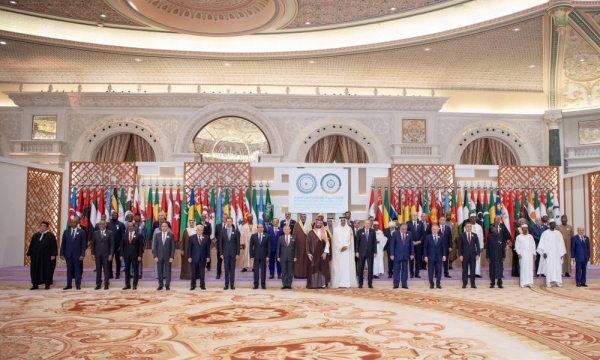In a bold move to escalate international pressure over the ongoing conflicts in Gaza and Lebanon, leaders from Arab and Islamic nations have called for Israel’s suspension from the United Nations. This proposal, presented during a summit in Riyadh, marks a significant shift in regional strategy, underscoring the gravity with which Middle Eastern leaders view the recent escalation of violence in the region.
The summit, attended by representatives from across the Arab and Islamic world, was convened to explore paths to de-escalation, promote peace, and address the cycle of violence that has plagued Gaza and Lebanon. One of the central issues raised was Israel’s continued membership in the United Nations, which Arab leaders now argue should be reconsidered in light of the country’s ongoing military actions.
Ahmed Aboul Gheit, the Secretary-General of the Arab League, voiced strong support for the proposal to freeze Israel’s membership in the UN. Speaking at the summit, he described the move as “a major step” toward addressing the longstanding grievances in the region. “There is a paragraph in this text that I find very important and vital, a paragraph that talks about moving before the General Assembly to freeze Israel’s membership,” Aboul Gheit stated, emphasizing the urgency of the initiative.
The proposal stems from the belief that Israel’s admission to the UN in 1949, under Resolution 181, was a decision that has not aged well in the context of its ongoing actions in Palestine and Lebanon. Many Arab and Islamic leaders now view Israel’s continued UN membership as outdated and unjust, given the current state of affairs in the region.
Aboul Gheit expressed confidence that the call for Israel’s suspension would gain broad international support. “Today, the Islamic group and the Arab group are two organizations moving before the international community, and I am confident that there are many countries that will support the idea of freezing membership,” he said, signaling a united front in the Arab and Islamic world.
Saudi Foreign Minister Prince Faisal bin Farhan also weighed in on the situation, reaffirming the collective commitment of the Arab and Islamic nations to seek a diplomatic resolution to the ongoing conflict. At a press briefing following the summit, he stressed the importance of holding the international community accountable for its response to Israeli actions. “We must not allow the international community to try to ignore Israeli crimes and focus on non-essential matters, justifying silence in any way,” he stated.
The summit’s concluding statement reflected a strong stance against Israel’s military actions, calling for countries around the world to halt the export of weapons and ammunition to Israel. This call is seen as part of a broader effort to disrupt Israel’s military capabilities, particularly in the context of its ongoing airstrikes and military operations in Gaza and southern Lebanon.
The summit also endorsed a Turkish-led initiative aimed at pressuring the United Nations Security Council (UNSC) and other international entities to halt the flow of arms to Israel. This initiative has already been signed by 52 nations, including 18 core countries, and has the support of both the Organization of Islamic Cooperation (OIC) and the Arab League. The initiative calls for a global endorsement of the resolution, urging international bodies to take action against the continued militarization of the Israeli state.
This push to suspend Israel’s membership and halt arms sales reflects deep frustration among Arab and Islamic nations, particularly in the face of what they perceive as a lack of meaningful international response to Israel’s military actions. By targeting Israel’s UN membership and pushing for an arms embargo, these nations aim to apply significant diplomatic and economic pressure in hopes of altering the trajectory of the conflict and bringing about a more equitable peace process.
While it remains unclear whether this proposal will gain enough traction to result in actual UN action, the summit in Riyadh represents a clear statement from Arab and Islamic leaders that they will continue to pursue diplomatic measures in response to the ongoing violence. With the call for Israel’s suspension from the UN, these leaders are signaling that they will not remain passive in the face of what they consider to be injustices in the region, and they are determined to seek accountability through the international system.
As the conflict continues to unfold, the eyes of the world will be on the UN and the global community to see whether this call for action will be met with concrete responses or whether Israel’s position in the international community will remain unchanged.









